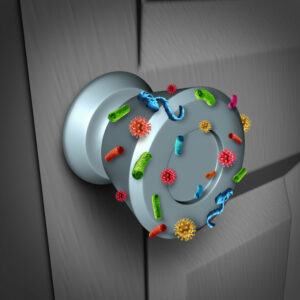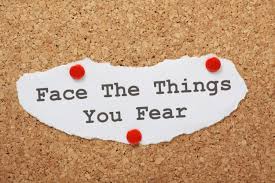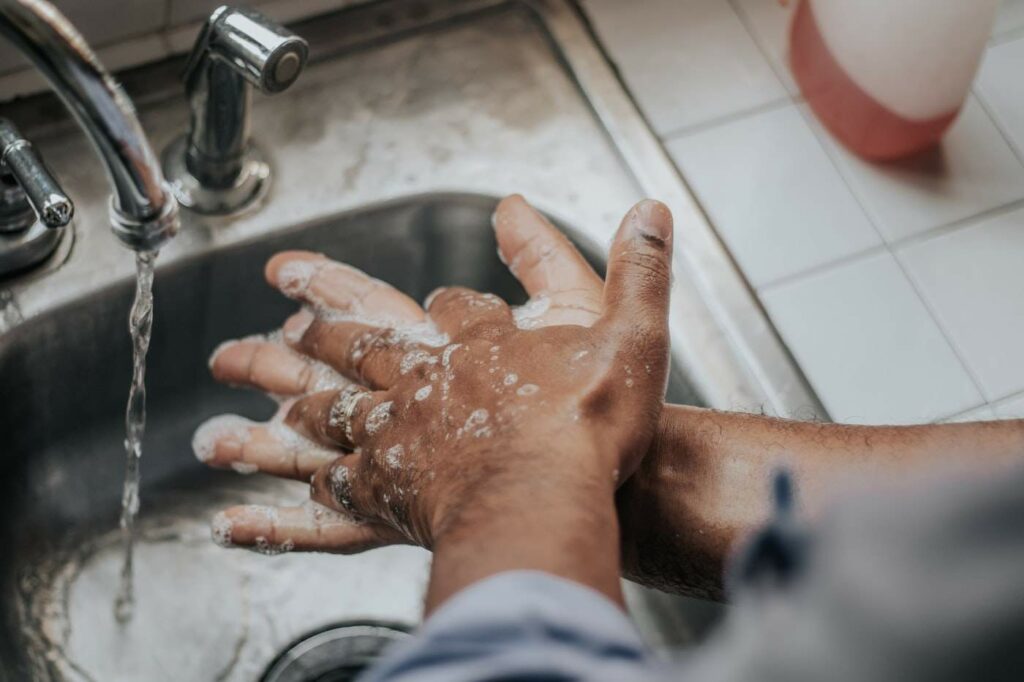If you are one of the millions of people who suffer from OCD, then you know how debilitating it can be. One of the most common types of OCD is contamination OCD. This type of OCD is characterized by a fear of germs and contamination. In this blog post, we will discuss some things you should know about contamination OCD. We will also provide tips for managing this condition.
Contents
What Is Contamination OCD?
 Contamination OCD is defined as a subtype of OCD in which the individual experiences obsessive thoughts and fears related to contamination by germs, toxins, chemicals, or other substances. People with this type of OCD often engage in repetitive behaviors (known as “compulsions”) in an attempt to reduce their anxiety or prevent themselves from coming into contact with contaminants.
Contamination OCD is defined as a subtype of OCD in which the individual experiences obsessive thoughts and fears related to contamination by germs, toxins, chemicals, or other substances. People with this type of OCD often engage in repetitive behaviors (known as “compulsions”) in an attempt to reduce their anxiety or prevent themselves from coming into contact with contaminants.
Moreover, studies have found that contamination OCD is linked to significant impairment in daily functioning and quality of life. For instance, individuals with this disorder may avoid public places, limit their contact with others, and spend excessive amounts of time cleaning or disinfecting their homes.
In fact, if someone is suffering from this type of OCD, their fear of contamination can become so severe that it interferes with their ability to live a normal, productive life. People need to be aware of the symptoms of contamination OCD and seek professional help if they think they or a loved one may be affected.
However, it is also been said that Contamination OCD is not as well known as other types of OCD, which can make it harder to diagnose. People with this disorder may not seek treatment because they are embarrassed or ashamed of their fears. As a result, Contamination OCD can often go undetected and untreated for years. But you must know that there are treatments available and you can get the help you need to manage your disorder.
What Are Some Symptoms?
It is believed that OCD stands for two major symptoms: obsessions and compulsions. Obsessions are recurrent, intrusive, and unwanted thoughts, images, or impulses that trigger intensely distressing feelings. On the other hand, compulsions are repetitive behaviors or mental acts that a person feels driven to perform. In order to reduce the anxiety caused by obsessions or prevent some dreaded event from happening.
People with contamination OCD often suffer from both obsessions and compulsions. However, not everyone experiences both symptoms. Let’s discuss both types of symptoms:
Obsessions
- Fear of dirt and germs
- Also, fear of contamination by chemicals
- Fear of contracting a disease from others
- Extreme fear of getting cough or cold
- Intrusive thoughts about sexually transmitted diseases
- Reoccurring images or impulses of oneself or others being injured
Compulsions
- Excessive and ritualistic hand-washing
- Showering for prolonged periods of time
- Avoiding contact with people, places, and objects that may be contaminated
- Checking door handles, light switches, and other objects for contamination
- Avoiding touching one’s face
- Wearing gloves or masks to protect oneself from contamination
These are only a few examples of obsessions and compulsions that people with contamination OCD may experience. It is important to note that everyone experiences symptoms differently and that not all people with OCD will experience all of the symptoms mentioned above. If you or someone you know is struggling with contamination OCD, it is important to seek professional help. There are many effective treatments available that can help reduce the symptoms of OCD and improve one’s quality of life.
What Triggers Contamination OCD?
 It is not known what exactly causes contamination OCD, but there are several risk factors that may contribute to its development. These include:
It is not known what exactly causes contamination OCD, but there are several risk factors that may contribute to its development. These include:
History of trauma or abuse
If you have experienced trauma or abuse in the past, you may be more likely to develop OCD. This is because trauma can cause changes in the brain that make you more susceptible to anxiety and other mental health disorders. This is basically a means of survival; when you experience trauma, your brain is trying to protect you from further harm by making you more aware of your surroundings. Unfortunately, this can also lead to OCD.
Genetic factors
If someone in your family has OCD, you may be more likely to develop the disorder yourself. This suggests that there may be a genetic component to OCD. In fact, studies have shown that OCD tends to run in families. Moreover, if your family member has OCD, you may be more likely to develop the same type of OCD.
Environmental factors
Certain environmental factors may also play a role in the development of OCD. For example, if you live in a chaotic or unpredictable environment, you may be more likely to develop OCD. This is because your brain is constantly trying to make sense of your surroundings and protect you from potential threats. So it can be a trigger for OCD.
Brain structure and function
The way your brain is structured and how it functions may also play a role in the development of OCD. Studies have found that people with OCD tend to have different brain structures than those without the disorder. For example, they may have less gray matter in the frontal lobe, which is the part of the brain responsible for executive functions like decision-making and impulse control. They may also have differences in the way the amygdala, hippocampus, and thalamus function.
Overall, these are some common triggers for contamination OCD. If you have any of these risk factors, it does not mean that you will definitely develop OCD. However, it is important to be aware of them so that you can be more vigilant about your mental health. If you are concerned about developing OCD, or if you think you may already have the disorder, please speak to a mental health professional. They will be able to assess your symptoms and provide you with the necessary treatment.
How Does Contamination OCD Impact Life?
 In life, mental illnesses can make it difficult to do things that others may find easy. For example, people with anxiety might have a hard time going outside or talking to new people because they’re afraid of what could happen. People with depression might not be able to get out of bed some days because they can’t find the energy or motivation to do anything.
In life, mental illnesses can make it difficult to do things that others may find easy. For example, people with anxiety might have a hard time going outside or talking to new people because they’re afraid of what could happen. People with depression might not be able to get out of bed some days because they can’t find the energy or motivation to do anything.
Similarly, people with contamination OCD may have several consequences due to their fear of germs and contamination. Let’s discuss some of the common consequences of contamination OCD:
Avoidance of certain activities or place
This is one of the most common consequences of contamination OCD. People with this mental illness often avoid activities or places that they think might expose them to germs and contaminants. For example, someone with OCD might avoid going outside during cold and flu season because they’re afraid of getting sick.
Difficulty in managing work, school, or other daily activities
Since people with contamination OCD often avoid activities or places that they think might expose them to germs and contaminants, this can make it difficult to manage work, school, or other daily activities. For example, someone with OCD might have a hard time going to work because their office is full of people and they’re afraid of getting sick.
Isolation from friends and family
Another common consequence of contamination OCD is isolation from friends and family. This is because people with this mental illness often avoid social situations or activities that they think might expose them to germs and contaminants. For example, someone with OCD might not want to go to a friend’s house because they’re afraid of getting sick.
Difficulty discarding items
Many people with OCD have difficulty discarding or parting with possessions, regardless of their actual value. The reasons for this may vary, but often it’s due to a fear of losing something important or a belief that the item is somehow special. In some cases, it may be due to a fear of contamination (e.g., throwing away an item that has been in contact with a “contaminated” person or object).
So the consequences can be numerous and at the same time varied. In fact, contamination OCD is a very common type of OCD. Many people with this disorder are afraid of dirt, germs, and other contaminants. It can be really tough to live with this type of OCD, as it can interfere with many aspects of daily life. Thus, you should know a few things about it. And seek professional help if you think you might have it.
How It Can Be Treated?
There are a number of ways to treat contamination OCD, and the most effective approach depends on the individual. Some people may benefit from medication, while others may find that therapy is more helpful. In some cases, a combination of both medication and therapy may be necessary. Let’s discuss some of the treatment options available.
Exposure and response prevention (ERP)
 This is one of the most common and effective treatments for OCD. ERP involves gradually exposing yourself to the things that trigger your OCD, while at the same time learning to control your anxiety and not engage in compulsive behaviors. For example, if you’re afraid of germs, you may start by touching doorknobs and then progress to shaking hands with someone.
This is one of the most common and effective treatments for OCD. ERP involves gradually exposing yourself to the things that trigger your OCD, while at the same time learning to control your anxiety and not engage in compulsive behaviors. For example, if you’re afraid of germs, you may start by touching doorknobs and then progress to shaking hands with someone.
Moreover, ERP is usually conducted with the help of a therapist. He or she will work with you to develop a fear hierarchy and then help you expose yourself to the things on your list. Researchers have found that this treatment can be quite effective in reducing OCD symptoms. Because of this, it’s considered to be the gold standard treatment for OCD.
Cognitive behavioral therapy (CBT)
CBT is another common and effective treatment for OCD. This approach focuses on helping you change your thinking patterns and behaviors. For instance, if you tend to worry a lot about germs, CBT would teach you how to challenge your beliefs about germs and how to control your anxiety. This treatment can be conducted with or without medication.
One study found that CBT was more effective than medication in the long-term treatment of OCD. However, it’s important to note that CBT may not be suitable for everyone. Some people may find it too challenging or may not be able to find a qualified therapist. But overall, CBT is considered to be a very effective treatment for OCD.
Medication
There are a number of different medications that can be used to treat OCD. The most common ones are antidepressants, such as fluoxetine (Prozac) and sertraline (Zoloft). These medications can help to reduce anxiety and improve mood.
Other medications that are sometimes used to treat OCD include antipsychotics and mood stabilizers. These medications can be helpful for some people, but they come with a risk of side effects. That’s why it’s important to discuss all of your options with a psychiatrist before starting any medication.
Self-help tips
 When you are preoccupied with worries about contamination, it can be hard to think about anything else. Here are some tips that may help you take back control:
When you are preoccupied with worries about contamination, it can be hard to think about anything else. Here are some tips that may help you take back control:
- Identify your triggers: What are the situations, places, or things that make your OCD symptoms worse? Avoiding these triggers can help reduce your anxiety.
- Challenge your beliefs: What are you afraid of? Is it really likely that you will get sick or that something bad will happen if you come in contact with a trigger?
- Practice relaxation techniques: Relaxation techniques, such as yoga, meditation, and deep breathing, can help you manage stress and anxiety.
- Live healthily: It is important to take care of yourself. Eating a balanced diet, getting enough sleep, and exercising can help you feel your best.
- Find a support group: There are many online and in-person groups that offer support for people with OCD. Connecting with others who understand what you are going through can be very helpful.
- Talk to someone who understands: Talking to a therapist or counselor who specializes in OCD can be helpful. They can provide support and guidance as you work to overcome your fears.
Henceforth, these are some of the self-help tips that can be useful for people with contamination OCD. This can be really helpful to deal with professional treatment. Because when you know your triggers, it becomes easier to avoid them and challenge your beliefs. Moreover, relaxation techniques can work wonders in managing stress and anxiety levels.
Therefore, you must consider self-care with professional treatment. Both can be effective in helping you manage your OCD symptoms and take back control of your life. Do not forget to connect with a support group as it can be really helpful to talk to people who understand what you are going through. Seek help today!
Conclusion
Conclusively, contamination OCD is a serious mental illness that should not be taken lightly. It is concerned with germs, dirt, and other contaminants that can cause harm to oneself or others. If you think you may be suffering from this disorder, it is important to seek professional help. With proper treatment, people with contamination OCD can lead happy and healthy lives.
Moreover, it is believed that people with contamination OCD are more likely to develop other mental disorders such as depression, anxiety, and substance abuse. Therefore, it is important to get help as soon as possible if you think you may be suffering from this disorder.
You can also contact Therapy Mantra if you are looking for professional help. We specialize in helping people with OCD and other mental disorders around the globe. You just need to look around there is plenty of help available for you. So, don’t delay and get the help that you need today! You can book a free therapy or download our free OCD treatment app on Android or iOS.


